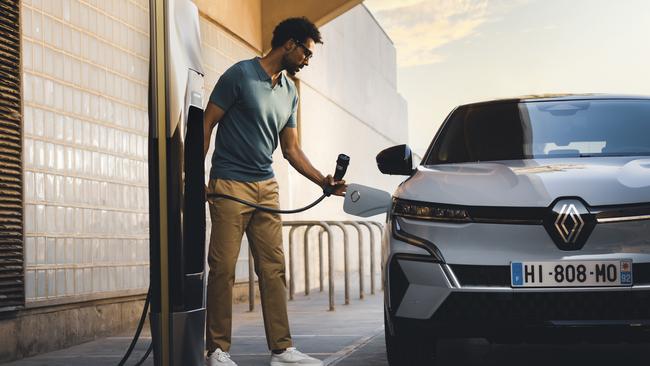European auto industry is entering uncharted territory
From January 1, 2025, new rules will come into effect that will require European car manufacturers to reduce the CO2 intensity on their range of models.

Over the last few weeks, we have seen much discussion around the future of the European automotive industry and, by association, Europe’s economic future.
Alongside this there has also been significant commentary around lithium demand.
What is the best way to separate the wheat from the chaff among all this noise?
Let’s start with regulation.
From January 1, 2025, new rules will come into effect which will require European car manufacturers to reduce the CO2 intensity on their range of models. Companies face a choice: increase battery electric vehicle (BEV) production and sales or face heavy penalties, potentially in the billions of euros.
Car companies that make smaller vehicles will be better placed, such as Stellantis and Renault. Stellantis, the automotive group behind the Opel, Peugeot, Citroen and Fiat brands, has invested heavily in electrification, leaving it well positioned for 2025.
Premium, luxury European carmakers, who typically make heavier, more polluting vehicles, are exposed to high penalties under the new rules, and this means these companies will need to step up their efforts to transition to BEVs. Expect production of lower CO2 vehicles in the second half of 2024, in anticipation of early 2025. This will mean more BEV production and more lithium-ion batteries.
Reality is starting to bite. Volkswagen has announced that, for the first time in its 87-year history, it is considering closing its factories in Germany. Chinese BEVs are flooding the market, and these are often not just cheaper, but have better technology than their European counterparts.
For Germany, the birthplace of the car and Europe’s largest economy, this is unthinkable.
This is not like Germany’s abortive attempt at building a solar industry, which was strangled by heavily subsidised Chinese panels. It is simply not acceptable to the German public to allow its largest, proudest industry to wither and die on the vine.
The automotive industry is crucial for Europe’s economy, providing 13.8 million jobs, or 6.1 per cent of total EU employment. Recent social unrest in Europe has provided a warning shot for politicians. Manufacturing jobs need to be boosted, not reduced.
But China already dominates global automotive production. It makes over 30 million vehicles a year, more than the double the EU’s 13 million. The figures become even more stark for electric vehicles and batteries. China makes over half of the world’s BEVs, and over 80 per cent of the world’s lithium-ion batteries, not to mention dominating lithium chemicals production.

These Chinese BEVs are world-leading products. Further, they have already broken through the barrier of being cheaper than internal combustion engine (ICE) cars. Almost two-thirds of BEVs available in China are already cheaper than their ICE equivalents, a stunning achievement.
By necessity, Europe is already putting up trade barriers for BEVs from China. This means Chinese companies will need to invest in European BEV and battery production in partnership with European car companies and share technological know-how in order to access these markets. This is reminiscent of what European car companies have been doing with ICE cars in China over the last couple of decades – just in reverse. The trade barriers will buy time for European car companies to catch up and help to level the playing field of massive Chinese state aid.
Expect onshoring and technology collaboration to be the buzzwords of Chinese car companies teaming up with Western counterparts in the coming years.
In the meantime, China will seek new markets to sell its BEVs: the developing world. Ethiopia went from using almost no phones, to 60 per cent of the population having a mobile phone, in a short time, leapfrogging the landline stage. It has just banned the import of ICE vehicles.
Countries like Ethiopia will probably also leapfrog ICE cars and jump straight to electric. It would not be inconceivable for Addis Ababa to have cleaner air than its twin city Washington DC in a decade.
The world is deglobalising, and world transport is electrifying. These are two mega-trends that are favouring more local production of BEVs, batteries and their constituent raw materials in Europe. The localisation will help the European car companies to survive, reinvent and thrive. Penalties for emissions will accelerate this shift, and premium brands will be at the forefront.
After a brief period of oversupply, with the high rate of annual compound growth in global BEV and lithium-ion battery production, the lithium market will once again shift into deficit and there will be further short-term spikes in pricing, which will once again affect Australian lithium companies.
For the next phase of lithium’s growth, a laser focus on keeping a low cost of production, and onshoring or friendshoring production of battery grade products, will be key to success.
It will be difficult, and there will be bumps along the way, but the direction of travel is clear. As we enter the next phase of the transition to electrification, batteries, and lithium, get ready for a wild ride.
Dr Francis Wedin is founder and executive chair of Vulcan Energy Resources.



To join the conversation, please log in. Don't have an account? Register
Join the conversation, you are commenting as Logout